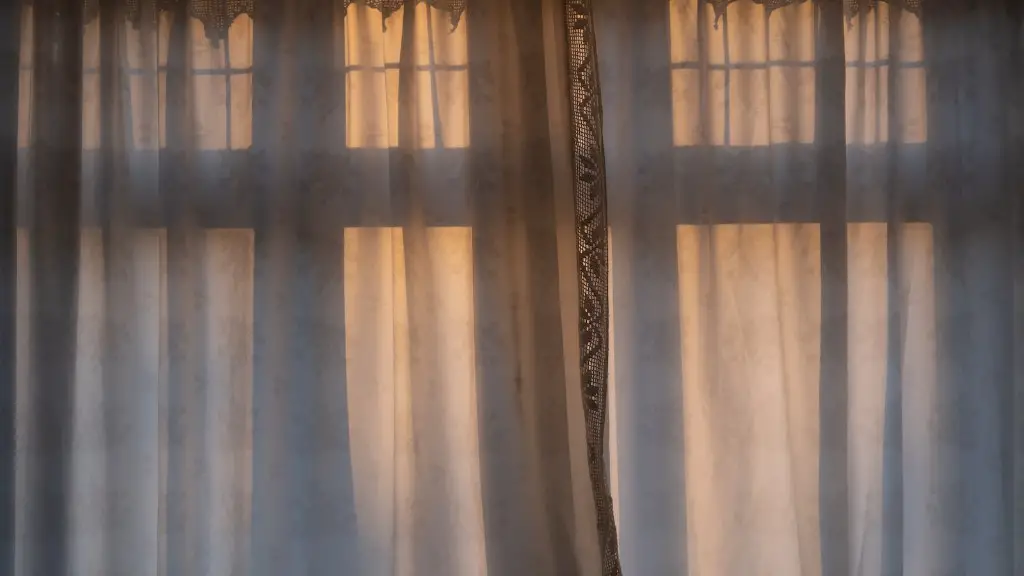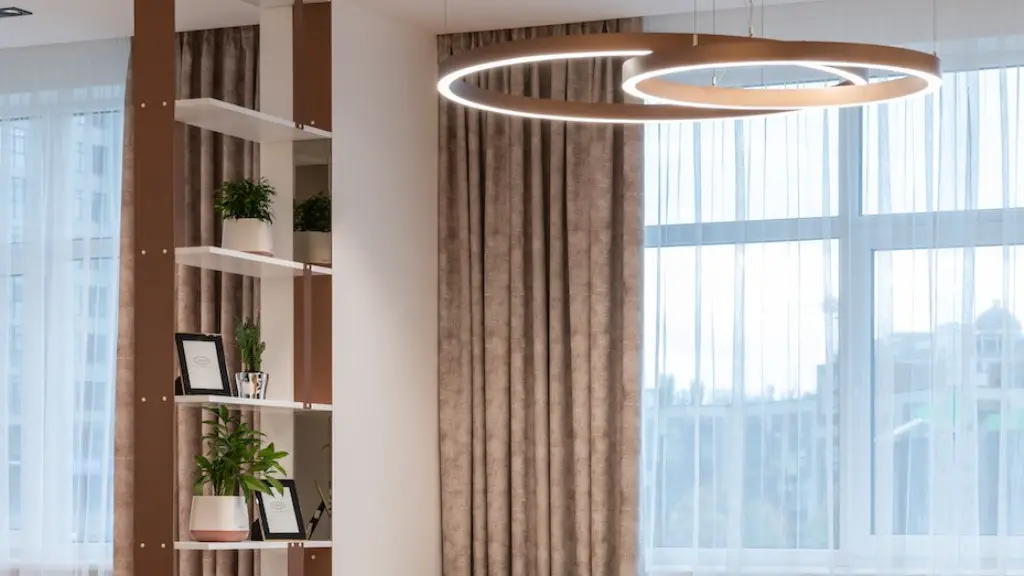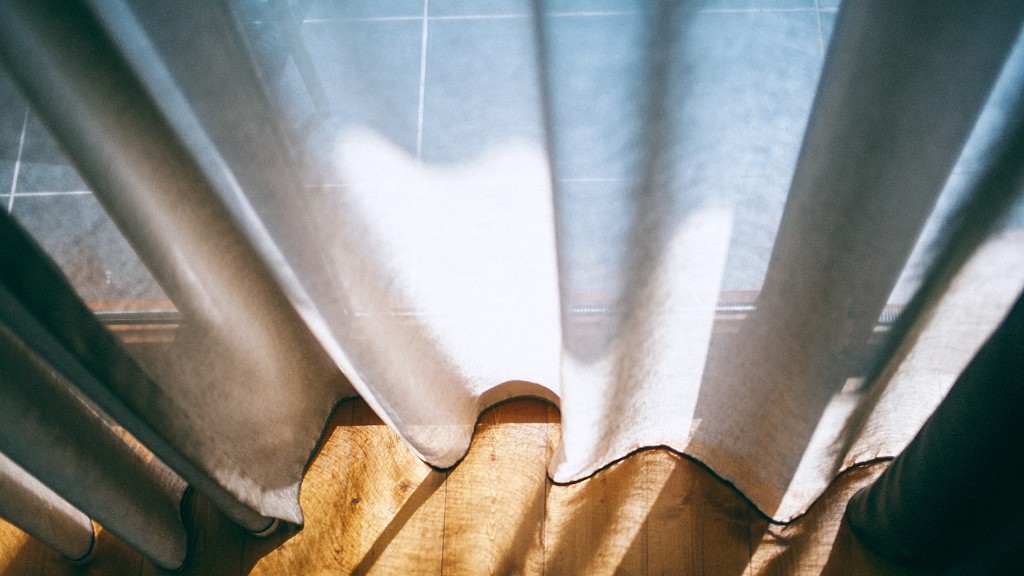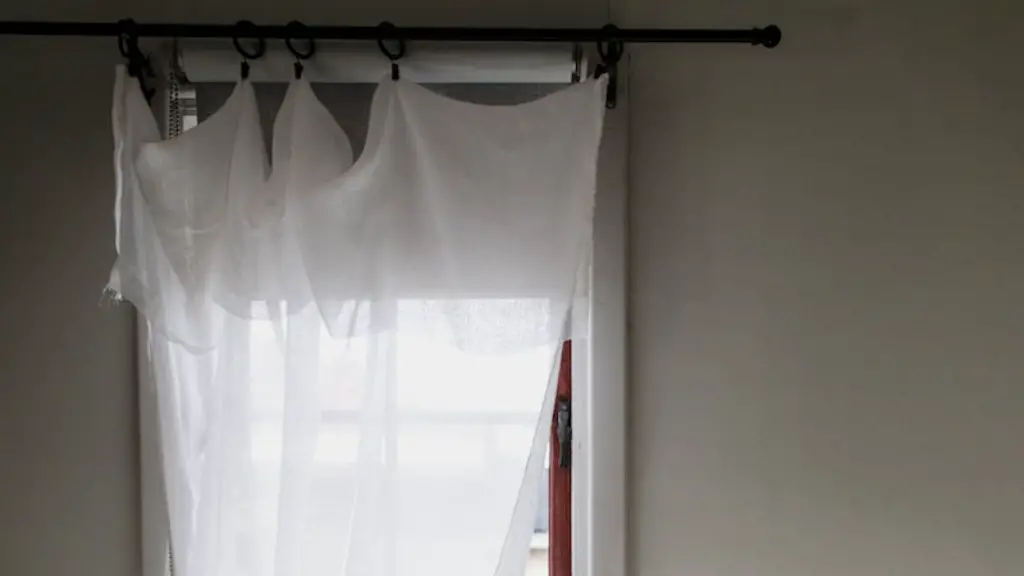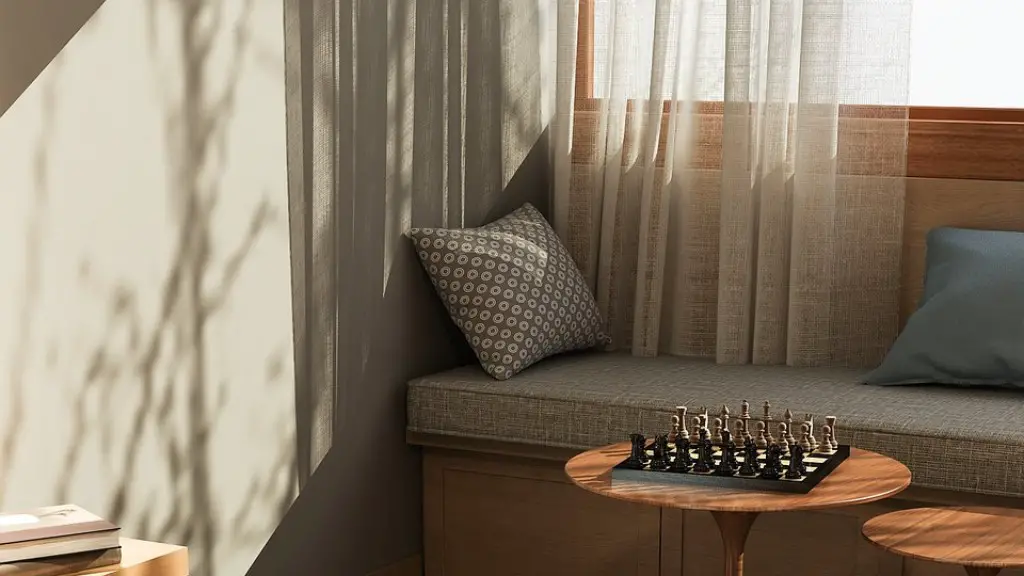Curtains can provide a variety of benefits in the home, one of which is sound absorption. When hung over windows, curtains can help to muffle outside noise, making the home environment more tranquil. In addition, heavy curtains can also act as a sound barrier between rooms, providing greater privacy.
This is a difficult question to answer definitively because it depends on the type and thickness of the curtains, as well as the type of fabric. Generally speaking, however, curtains can help to absorb sound and reduce noise levels in a room.
What type of curtains absorb sound?
If you’re looking for a way to block out sound and light, heavy blackout curtains are the way to go. They’re also great for preventing drafts and keeping your home warm.
Soundproof curtains can be a great way to reduce noise in your home. They can block between 60%-80% of outside noise, and reduce noise by between 21-25 dB. This can make a big difference in your home, and help you to get a better night’s sleep.
Do curtains reflect or absorb sound
Curtains are a great way to reduce noise pollution in your home. The flat, sturdy surface of a curtain reflects sound waves, while the soft, absorbent fabric of a curtain absorbs and disperses energy. This combination makes curtains an effective soundproofing tool.
A lightweight 100% polyester thin faux linen fabric would work well for acoustic paneling, as it would hold the design and color exceptionally well. Another acoustic fabric material option would be muslin, as it is quite breathable, but woven well enough that it is not transparent to see the interior panel and components.
How can I soundproof my room cheaply?
There are many ways to soundproof a room cheaply and easily. One way is to use furniture and shelving as a wall divider. Another way is to use wooden shutters or sound dampening curtains. You can also use soft furnishings such as rugs and carpets, or wallcoverings and thick blankets. Finally, you can fix loose floorboards and use acoustic caulk.
If you’re looking for a way to help reduce noise in your home, consider block-out curtains. Although they can’t completely eliminate all sound, they can help to noticeably reduce and absorb noise. Keep in mind that noise can still enter the room through the walls and gaps, but curtains can assist in blocking sound at the window space.
Do blackout curtains muffle noise?
Blackout curtains can provide some sound insulation, but the amount of sound reduction will vary depending on the thickness and density of the fabric. In general, blackout curtains will provide some sound reduction, but they may not be as effective at blocking out sound as other types of soundproofing materials.
If you’re looking for a way to block out both light and noise, you’ll need to invest in soundproofing curtains. These curtains are made using a thicker, heavier fabric that is designed to block out both light and sound. However, because they are thicker and heavier, they can be more expensive.
Is there a material that absorbs sound
There are a variety of sound absorption materials available on the market, each with its own unique set of pros and cons. The best sound absorption material for your needs will depend on the specific acoustical requirements of your space.
If you’re looking for an effective way to reduce noise in your home or office, soundproof curtains are a great option. These curtains are made with a mass loaded vinyl core, which helps to reflect incoming noise. The vinyl is combined with PVC and crushed limestone, which makes it a very heavy-duty barrier. This helps to block out unwanted sound, making your space much quieter.
How do you soundproof between bedrooms?
If you live in an apartment or condo, you may be familiar with the noise that can come from your neighbors. Whether it’s footsteps from the unit above or music from the unit next door, noise can be a major issue. There are a few things you can do to help reduce the noise coming from your shared walls.
Start by placing bookshelves and other large pieces of furniture against the shared wall. Upholstered sofas and chairs can also help to reduce the noise coming from downstairs. Thick wallpaper and blankets may help to dampen the sound coming from adjacent rooms, while curtains can minimize outside noise.
There are a variety of ways to reduce the noise coming from your shared walls. By taking a few simple steps, you can help to create a quieter living environment.
There are a few things you can do to soundproof your walls, including using sound-blocking paints, special drywall, or thick membranes. Insulation can help but generally isn’t enough. “Decoupling” your wall, so it isn’t attached to your neighbor’s wall, or adding mass (or both), will help more.
How do you soundproof a renter friendly
If you’re looking to soundproof your apartment, there are a few easy things you can do through your interior design. Adding a large rug plus a rug pad will help to absorb noise coming in and out of your space. You can also add canvas art or tapestries on the walls to help muffle sound. Finally, choosing soft furnishings like drapes and plush couches will also help to soundproof your home.
There are a few things you can do to make your room as close to perfectly soundproof as possible. By decoupling the walls, adding a floating ceiling, and insulating, you can greatly reduce the amount of noise that enters your room. Installing drywall and choosing the right door can also help to reduce the amount of sound that enters your room. Finally, filling in any air gaps around your doors and windows will help to further reduce the amount of noise that enters your room.
Do Ikea curtains block sound?
The GUNNLAUG curtains from IKEA are designed to help absorb sound. They have been verified according to ISO 354, a specific metric for measuring sound absorption. Thanks to the combination of the chenille yarn and weave construction, the curtains can absorb 50 to 100 percent more sound than fabrics of similar quality and weight.
If you’re looking for a way to reduce the noise in your home or office, soundproofing blankets can be a great solution. Made with the right materials, these blankets can absolutely work to dampen sound and help you focus. keep in mind though that they won’t completely eliminate all sound, so you may still hear some noise from outside.
Do you have to cover the whole room to soundproof it
You don’t need to soundproof an entire wall to achieve adequate soundproofing. Applying soundproofing materials on 15%-30% of your room’s surface area can dampen noise sufficiently. The above range is a good number to work up from, depending on the amount of soundproofing you need.
There are a few ways to reduce traffic noise and other noises from the street. One way is to use nature to your advantage. By planting trees and other greenery, you can create a natural barrier that will help to block out some of the noise. Another way to reduce noise is to change your windows.Vinyl windows are much better at blocking out noise than older windows. You can also seal any gaps around your windows to help reduce noise. Finally, you can add acoustic panels to your walls to help further reduce noise. If you want to get serious about blocking out noise, you can contact a company like Soundproof Cow and have them help you out.
Warp Up
Curtains do not absorb sound. they are made of materials that reflect sound waves, which helps to reduce the overall noise level in a room.
Overall, curtains do absorb sound to some degree, however they are not the most effective method to soundproof a room. The thickness and material of the curtains will affect how much sound they can absorb.

